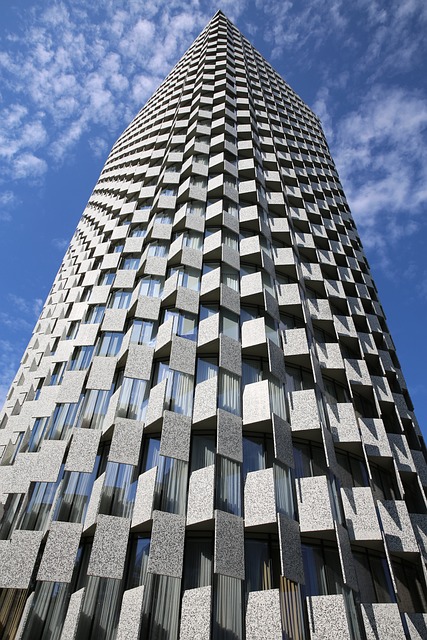So, what’s the actual magic behind this tech? For starters, blockchain allows for decentralized data management. In a nutshell, every transaction related to energy use is recorded on a secure, tamper-proof ledger accessible to all stakeholders. This means hoteliers can track energy consumption in real-time. No more guessing games or inflated bills; they can pinpoint which areas use the most energy and when, leading to informed decisions that slash waste.
But wait, there’s more! Another key advantage is the ability to integrate renewable energy sources seamlessly. Think solar panels, wind turbines, or even bioenergy sources. Hotels can trade excess energy with one another or sell it back to the grid, turning what used to be a liability into an asset. Picture hotels as mini power plants rather than just places to sleep. It’s like being part of a high-tech energy community where everyone plays a role in reducing carbon footprints.
Revolutionizing Hospitality: How Blockchain is Transforming Energy Management in Hotels
Think of blockchain as a digital ledger that records information like a high-tech diary, but way more secure and unchangeable. In hotels, every light bulb, HVAC unit, and even the swimming pool can be connected to this system. Each piece of equipment sends real-time data about its energy usage, making everything as transparent as glass. This visibility not only helps hotels optimize energy consumption but also empowers them to reduce costs significantly. Imagine the savings—more resources for staff training or enhancing guest experiences!
But there’s more! Blockchain technology allows hotels to engage in energy trading. Picture this: your hotel generates extra solar energy. Instead of letting it go to waste, it can sell that surplus energy to neighboring businesses, creating a lively little marketplace. How cool is that? This not only boosts the hotel’s bottom line but also fosters a sustainable community outreach.
And let’s not forget about guest perks! With blockchain, guests can earn tokens for conserving energy—think of it as a rewards program without the complicated rules. They can redeem their tokens for discounts on their stay or free meals. Who wouldn’t want to save a little cash while being eco-friendly?
Blockchain-Powered Efficiency: The Future of Energy Management in the Hotel Industry

Blockchain is more than just the backbone of cryptocurrencies; it’s a transformative technology that allows for secure, transparent transactions without the need for intermediaries. Think of it as a smart digital ledger, meticulously recording every energy transaction in real time. For hotels, this means they can track energy consumption across various areas—rooms, restaurants, gyms—all with pinpoint accuracy. No more guesswork or outrageous energy bills!
But how does this work, you ask? It’s all about smart contracts. These are automated agreements coded into the blockchain that execute when specific conditions are met. Picture this: a hotel installs smart thermostats that communicate with the blockchain. As guests adjust their room temperature, the system automatically updates and allows for dynamic energy pricing, adapting to peak usage times. Imagine saving money while keeping your guests comfortable!
Moreover, the integrated nature of blockchain means that hotels can easily engage in energy trading. Picture two hotels in the same area; one has surplus energy from its solar panels, and the other is in need. Through blockchain, they can trade energy seamlessly, boosting efficiency and reducing waste. It’s like a cooperative spa day for two hotels—helping each other while maximizing their resources!
Unlocking Savings: The Top Benefits of Blockchain in Hotel Energy Management
So, what’s so special about blockchain? First off, it offers a level of transparency that’s hard to beat. With blockchain technology, every transaction related to energy consumption is recorded in an immutable ledger. This means hotel managers can track usage patterns in real-time, pinpointing where energy is being wasted. Instead of waiting for the monthly bill to reveal a spike, they can catch those rogue energy-hogging appliances before they wreak havoc on the budget.
But that’s not all. Smart contracts can automate energy management processes. Think about it: Why should hotel staff manually adjust the thermostat, when they can set parameters that trigger changes based on occupancy? If a room is empty, the smart contract can automatically dial down the heating or cooling system, saving tons of energy—and dollars—without any extra effort. It’s like having an energy-saving superhero in your back pocket!
Plus, blockchain fosters collaboration between hotels and energy providers. Imagine negotiating energy prices based on collective usage data instead of guesstimating. By grouping energy consumption with other hotels, they could leverage better rates, further squeezing savings.
So, with blockchain, hotels can start to unlock impressive savings while keeping their carbon footprint in check. It’s a win-win situation that makes every bit of energy count. And let’s be honest—who wouldn’t want to be part of a greener, smarter future?
Sustainable Stays: How Blockchain Technology is Greening Hotel Energy Practices
So, what’s the deal with blockchain? Think of it as a digital ledger, like a well-organized notebook, that records transactions securely and transparently. In the hospitality industry, this tech is transforming energy consumption. Hotels can now track their energy use in real-time, like a fitness tracker for your electricity! With every light switch flick, every air conditioning unit running, data flows seamlessly through the blockchain, revealing patterns that help businesses save energy and reduce waste.
But here’s where it gets really cool: blockchain fosters a community-driven approach. Guests can engage directly with the hotel’s energy practices. Imagine earning rewards for using less energy during your stay—how enticing is that? It’s like being part of a friendly competition where everyone wins for being eco-savvy. By participating in programs that encourage energy efficiency, both guests and hotels play a crucial role in saving our planet.

And let’s not forget about partnerships. Blockchain enables hotels to collaborate with renewable energy providers effortlessly. This means they can source clean energy more efficiently, reducing their carbon footprint. Picture it: when you’re enjoying your coffee on the balcony, you’re sipping under the glow of solar-powered lights!
Enhanced Transparency and Reduced Costs: The Blockchain Advantage for Hotels
Picture this: instead of sifting through a mountain of middlemen—travel agents, booking platforms, and payment processors—hotels can deal directly with guests. With blockchain, every transaction is recorded on a secure, decentralized ledger, making it almost impossible to manipulate. This not only keeps pricing in check but also builds trust. Guests can verify that they’re getting the best deals directly from hotels, instead of inflated prices leveraged by intermediaries.
Ever felt frustrated by hidden fees tacked onto your hotel bill? Blockchain addresses that issue by providing clear, upfront pricing. Imagine checking into a hotel and knowing exactly what you’ll be charged, no surprise add-ons at checkout. It’s like having a crystal ball that shows the final price before you even book!
And what about costs? By cutting out those pesky middlemen, hotels can save heaps on commission fees. These savings can translate to better pricing for guests or even reinvestment into improving the hotel experience. Think about it: that cozy corner you love could get a facelift, or maybe the staff could receive better training—thanks to the affordability unlocked by blockchain.
In essence, blockchain isn’t just a tech trend; it’s like a breath of fresh air in the often stuffy world of hotel management. With enhanced transparency and reduced costs, both guests and hotels can enjoy a more seamless, satisfying experience. So, are you ready to explore the future of hospitality?
Frequently Asked Questions
How Does Blockchain Improve Energy Efficiency in Hospitality?
Blockchain technology enhances energy efficiency in the hospitality sector by providing transparent and immutable records of energy consumption and sourcing. This helps businesses optimize energy usage, reduce waste, and verify renewable energy claims, leading to cost savings and improved sustainability practices.
How Does Blockchain Enhance Sustainability Efforts in Hotel Energy Use?
Blockchain technology can optimize energy use in hotels by enabling transparent tracking of energy consumption and sources, allowing for real-time data analysis. This promotes efficient energy management, facilitating the integration of renewable energy sources, reducing waste, and enhancing accountability. Ultimately, this leads to improved sustainability practices within the hospitality industry.
Can Blockchain Reduce Energy Costs for Hotels?
Utilizing blockchain technology can streamline operations and enhance energy management in hotels. By enabling transparent tracking of energy usage and optimizing supply chains, hotels can reduce waste and operational costs. Additionally, blockchain can facilitate smart contracts for energy procurement, leading to lower prices and more efficient energy use.
What Role Does Transparency Play in Blockchain Energy Solutions for Hotels?
Transparency in blockchain energy solutions for hotels enhances accountability and trust. It allows for real-time tracking of energy consumption and production, ensuring that transactions are verifiable and efficient. This openness not only helps hotels optimize their energy use but also fosters greater collaboration with energy providers and stakeholders, ultimately leading to sustainable practices and reduced costs.
What Are the Main Benefits of Blockchain for Energy Management in Hotels?
Utilizing blockchain in energy management for hotels enhances transparency and traceability, allowing for real-time monitoring of energy consumption. It promotes efficient energy trading among users, reduces costs through automated transactions, and fosters sustainability by enabling the use of renewable energy sources. Additionally, blockchain helps in optimizing energy usage and improving data security.